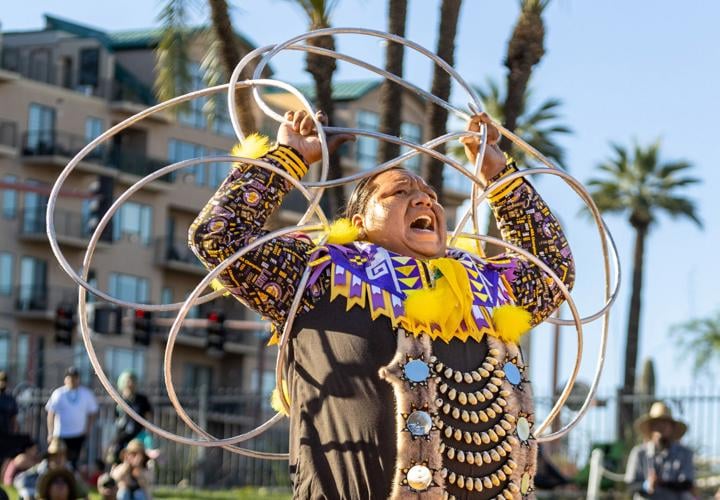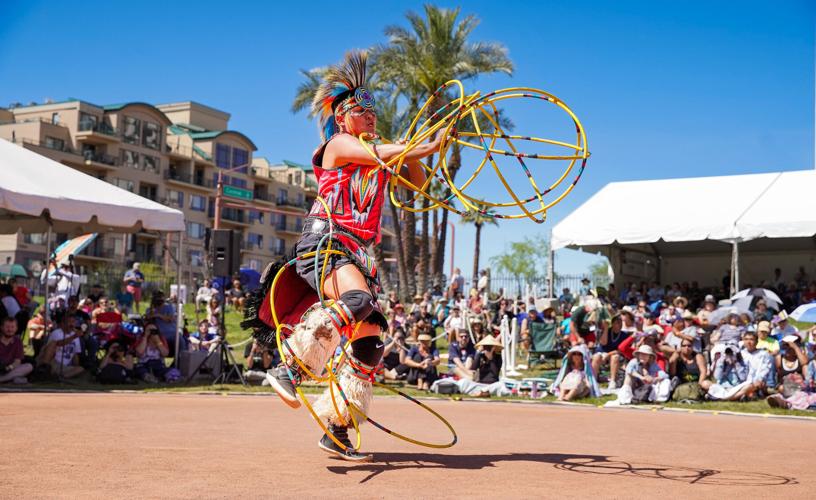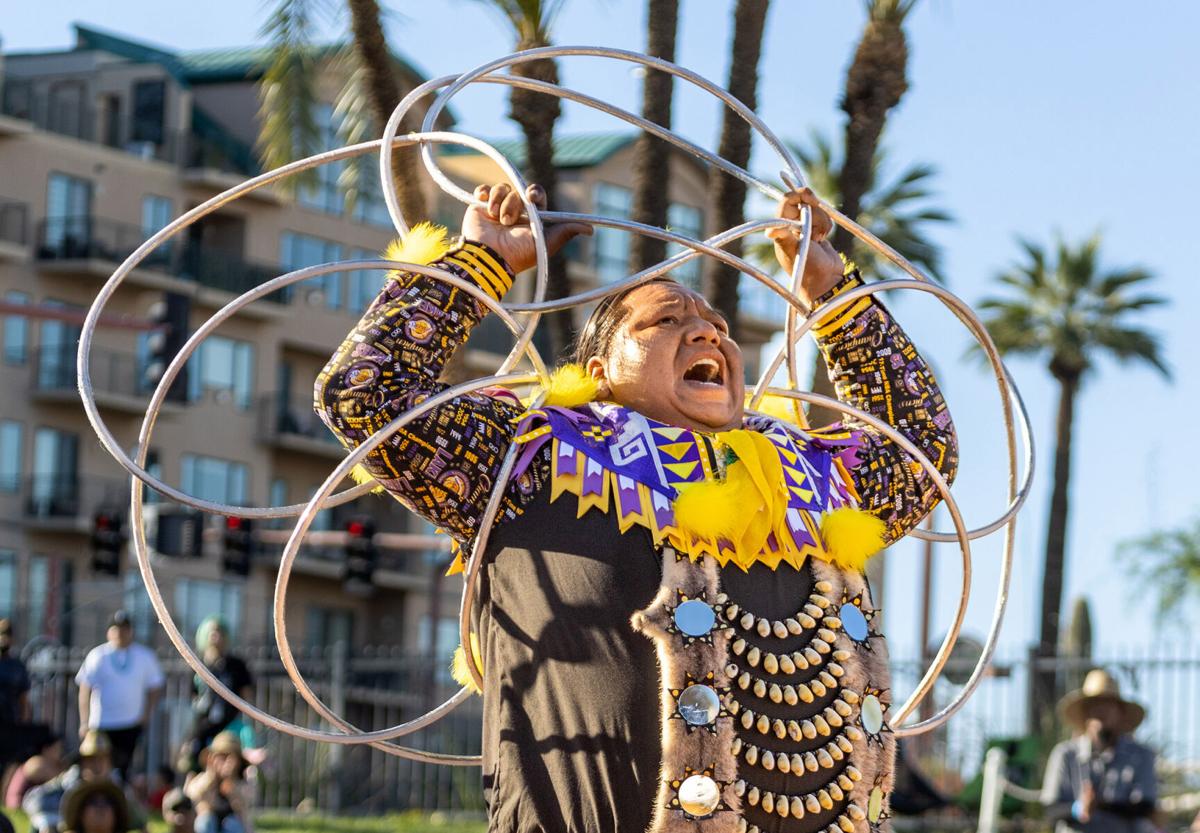Representatives of indigenous communities from around the world will gather Feb. 18 and 19 in Arizona to celebrate their cultural heritage through hoop dancing.
The 33rd World Championship Hoop Dance Contest will take place at the Heard Museum, a private, not-for-profit museum in Phoenix dedicated to advancing American Indian art. The dancers use colorful hoops to create intricate patterns and designs that tell stories and share their cultural heritage through dance.
With roots in traditional healing ceremonies, the origin of the hoop dance varies from nation to nation. For Moontee Sinquah, who grew up on the Hopi nation in Winslow, “It’s a healing dance a boy would do with hoops. Many people would visit from miles around to be healed. Every time the boy passed his body through a hoop, the boy was to be adding a day, a week, a month a year on to the sick individual’s life.”
Moontee’s son, the current defending adult world champion, says hoops were traditionally made from the wood of the willow tree. “The hoop is a representation of the cycle of life … there is no beginning and no ending, always ongoing,” Sampson Sinquah says.
Sampson Sinquah, 2022 World Hoop Dance Champion, performs at a celebration of the unveiling of a mural and grand opening of the Southwest Native Trading Post on Tucson’s south side. The Wild Medicine drummers — Sinquah’s father, Moontee, and brother, Scott — kept a steady beat and sang. Video by Carmen Duarte/Arizona Daily Star.
The Heard event is an opportunity for contestants to move the art forward by incorporating their own choreography to the traditional dance. Moontee’s younger son, Scott, blends his own dance style with traditional moves he was taught as a child, reflecting his own personal growth through new choreography.
For Moontee, whether a dancer starts as a powwow dancer or is trained as a more traditional hoop dancer, it’s all “magic” to watch.
Men and women compete on an equal field, and individual routines feature as few as four or as many as 50 hoops. Dancers are judged on a slate of five skills: precision, timing/rhythm, showmanship, creativity and speed. Contestants compete in five age divisions and cash prizes totaling $25,000 are awarded in each division.
For Moontee, who hails from the Hopi, Tewa, and Choctaw nations, the event has a deeper significance. Not only is it an opportunity for dancers to showcase their art, it’s a “family reunion” of like-minded people. He sees the gathering as a “way to put love back in our families” and a celebration of customs and traditions that the U.S. government tried to eradicate in the late 19th and early 20th century through forcibly sending indigenous children to boarding and reform schools. “These things at one time were illegal for us to do — to sing, to dance … to speak our languages, to leave the reservation. So this is a pretty unique medium to share the beauty of song and dance that our ancestors struggled so hard to hold on to for us.”

World Championship Hoop Dance Contest 2022.
A late start
Moontee’s path to hoop dancing, which he credits with “creating a new me,” is another non-traditional transition for the artist, actor and musician.
In a culture that reveres passing down tradition, hoop dance is being passed up to Moontee, as he learned the artform from his sons when he was 40 years old. Sampson and Scott started hoop dancing as toddlers. They studied under Quentin Pipestem of the Tsuut’ina nation of Alberta, Canada, the world champion adult dancer of the early 1990s.
Pipestem taught the Sinquah boys the basic choreography and every year he returned for the hoop dance competition, he would resize one of his own hoops so the boys could add to their skills and formations.
Moontee marvels at the skill of his sons. “They can do it in their sleep because they’ve done it their whole lives. Whereas, for me, I need to practice and practice just to feel comfortable.”
Despite Moontee’s late start, he credits the support and encouragement of his immediate family and the larger hoop dance community with helping him capture three senior world titles since he started hoop dancing 16 years ago.
Leading with love
Moontee performs internationally and nationally with his family, including sons Sampson Sixkiller, Scott Sixkiller, and nephew Colby Afraidofhistracks.
Together, they share their powwow style of song and dance that is a unique blend of contemporary music and lyrics, with traditional elements of Hopi powwow song and dance. As Moontee repeats in many of his performances, “ music is love and music is what we share from the heart.”
They are sharing that love on a bigger platform now the Phoenix Suns are featuring their drumming and singing at home games. A couple years ago, after the Suns changed their jerseys to honor first nation tribes, the franchise commissioned Sampson to make a powwow drum — a three-foot drum that accommodates 10 singers.
Sampson says the joy in performing on the national sports stage is made more thrilling because “we all get to experience it together.”






